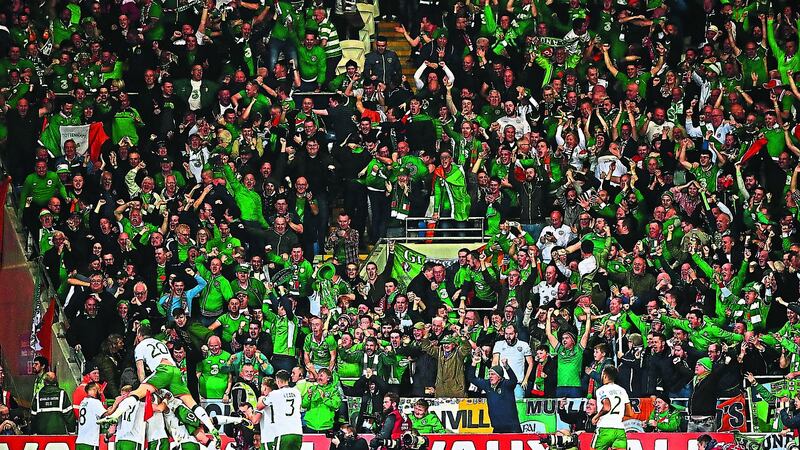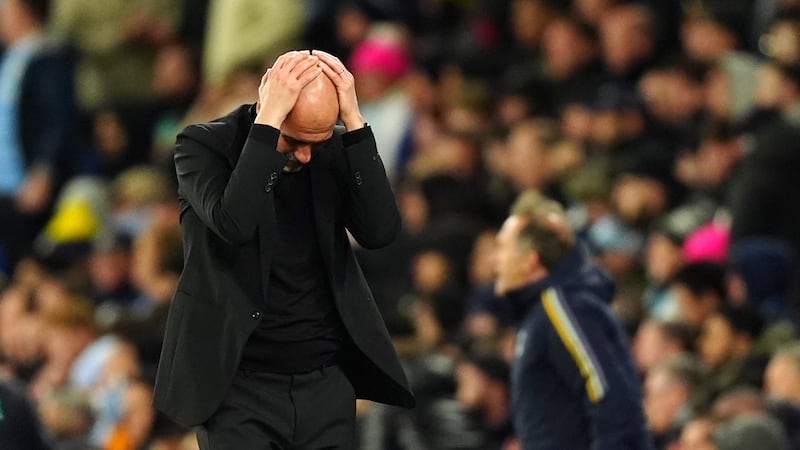AFTER a tumultuous evening in Cardiff, Craig Bellamy was left shaking his head in the Sky Sports studio.
He caught the tail-end of Martin O’Neill’s time in charge at Celtic as an on-loan striker.
Bellamy never quite knew where O’Neill started and ended.
Still reeling from the Republic of Ireland’s 1-0 win over Wales that ended his nation’s pursuit of a place at next summer’s World Cup finals, Bellamy gave this summation of the Kilrea man.
“There is a lot of stuff we get taught,” Bellamy said.
“Throw it out the window.
“He does completely the opposite. You won’t even see him. There were times you’d turn up on a Friday and I couldn’t tell you what our formation was on a Saturday or who was playing where.
“I’d read the list and I’d look at Neil Lennon and ask him: ‘What formation are we playing?’ There was no information whatsoever.
“But, I tell you, he knew his players, you knew where you stood with him. And if you played well for him, the confidence he’d give you, the way he could make you feel, you wanted to run even more for him.
“There was no rocket science. His teams were always brilliant at set-pieces.
“I never worked on one set-piece with him. He just expects you to attack the ball in your box and in their box.
“I can’t tell you why he does well, but there’s just something about the guy. He’s just an incredible man.”
Wales had six first half corners and two very good free-kick situations around the Republic of Ireland’s box.
At no stage did Ireland look as though they would concede from any of these set-plays.
A few years ago in Gelsenkirchen, the Republic grabbed a 1-1 against Germany.
Normally used as an out ball for the team on either flank, Aidan McGeady played an unfamiliar central role that night – behind the main striker.
Afterwards, press reporters asked the former Celtic player when he found out he was playing a different, more central role, McGeady replied: “About half-an-hour before the game.”
I’ve attended dozens of O’Neill’s press conferences since he assumed the Republic reins four years ago.
The Kilrea man has enjoyed only a lukewarm relationship with the Irish media.
At times he can be charming.
Other times he can be tetchy.
He can be laugh-out-loud funny.
And he can also be distant.
There is a well established trend. He usually meets the press twice in the lead up to a big game – the first one is maybe three or four days out and the second is on the eve of the game.
O’Neill makes for much better company in his first press briefing of the week than his second.
On the eve of games, O’Neill can be monosyllabic and gives off the vibe that he would rather be anywhere else than sitting fielding questions from the press.
He can come across as aloof. I suppose like many managers, he doesn’t like being questioned on his tactics.
It’s as if we’re not qualified to scrutinise his approach and his choices.
That’s why he’s endured such a fractious relationship with RTE reporter Tony O’Donoghue.
I’ve known Tony since my first Republic of Ireland trip back in 2001 and he’s a great journalist.
After the side had played poorly and escaped with a 1-1 draw against Georgia last month, O’Neill was downright rude and evasive in his answers to O’Donoghue.
Given the lethargic performance that Republic fans had just watched and the unfavourable position the team found themselves in in Group D, O’Neill’s timing couldn’t have been worse.
A 1-0 home defeat to Serbia followed a few days later and it looked increasingly unlikely the Irish would get to the World Cup play-offs.
And yet, there we all were, whooping and hollering in the Cardiff City Stadium on Monday night watching O’Neill’s wonderfully unrehearsed celebrations after the final whistle and the 3,300 Irish supporters going ballistic behind the goal.
After everyone was washed away into the night in the Welsh capital, it was hard to make sense of it all.
I really don’t know how Martin O’Neill did it.
The former Celtic manager has been in the job four years and is still a conundrum.
During the Euro 2016 qualification campaign, Scotland played the Republic off the pitch in Parkhead and had the better of the corresponding fixture in Dublin.
You could only stand back and admire the clever system of play that Gordon Strachan had developed with roughly the same resources as O’Neill.
During Euro 2016, Wales played a lovely brand of football – passing through their midfield and reaching the semi-finals.
Compare the aesthetic pleasures of the Scots and the Welsh
with the style with which the Republic play and there is no comparison.
No matter what angle you view the Republic of Ireland from, they are most definitely brutal to watch.
Their biggest challenge is that a football match might break out against them.
Possession stats don’t matter.
To them, possession stats are for nerds.
The midfield is barren land.
It’s reached the stage where they’re actually better off without the ball. And they cope fine.
When they have the ball, it’s treated like a hot potato.
You only have to watch how many times Ciaran Clark and Stephen Ward thumped the ball high into the Cardiff night air.
What they did to Wales and a sufficient amount of other teams in Group D over the last year is break their spirit. Their appetite for hard graft is insatiable.
The Irish players will chase lost causes like they’re chasing down pots of gold. That kind of mentality is such a rare thing in the modern game.
The way the Irish play would make you wince – and yet you can’t take your eyes off them.
Welcome to the weird and wonderful world of Martin O’Neill – where nothing makes sense and the Republic of Ireland, like they always do, end up in the World Cup play-offs.








